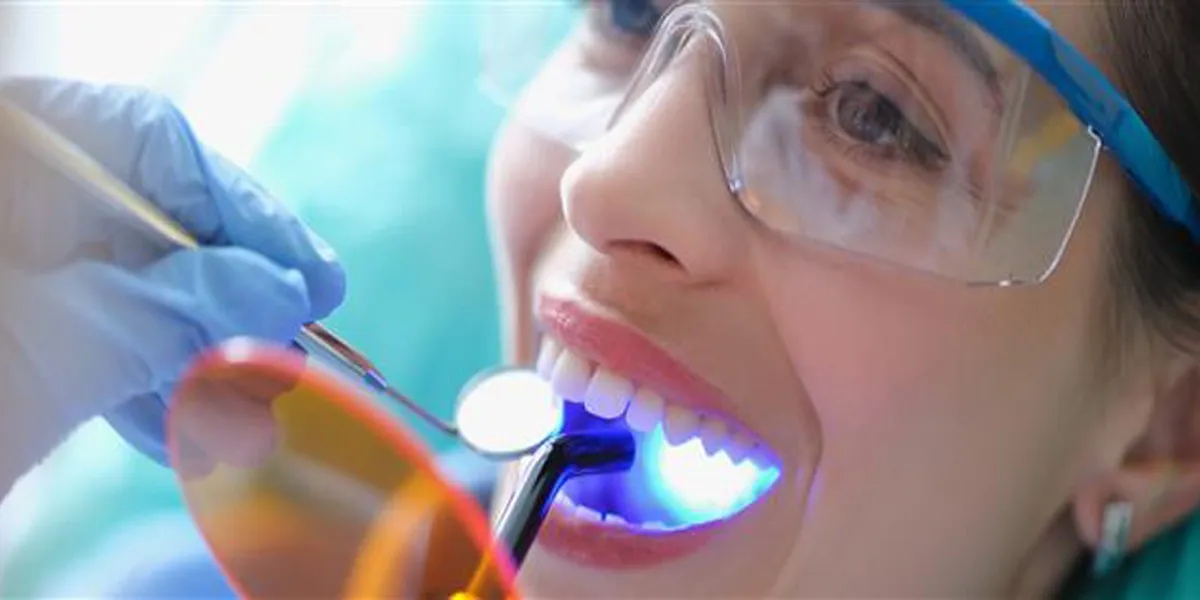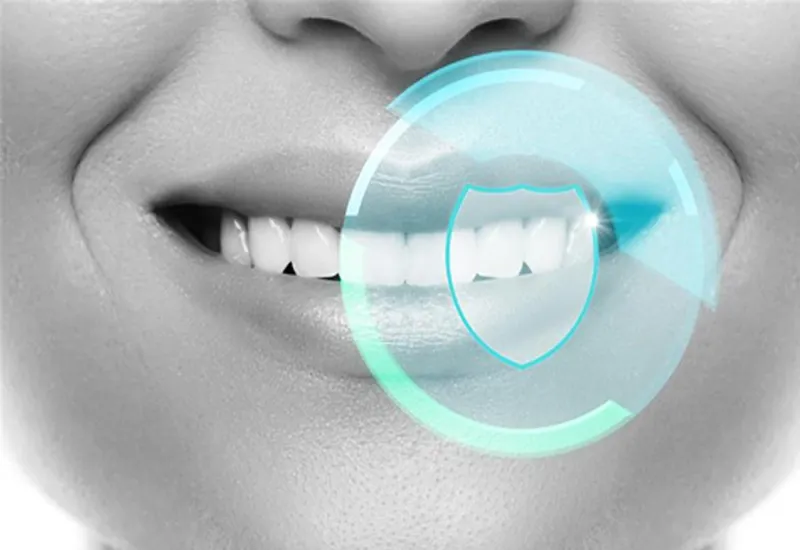
The Science Behind Fluoride: Why Dentists Trust It for Adult Oral Health
Dr. Azadeh Hosseini
17 September 2025
When most people hear the word “fluoride,” they picture school-aged children being told to brush their teeth. But the truth is, fluoride for adult oral health is just as important as it is for kids. Dentists across the world, especially in the United States, continue to recommend dentist-approved fluoride treatments for adults because the scientific benefits are too strong to ignore. If you’ve ever wondered, “Is fluoride still effective for adults?” or “Why do dentists recommend fluoride if my teeth are already developed?”, the answer lies in decades of scientific research and real-world results.
Why Fluoride Still Matters for Adults
Even after all permanent teeth come in, the mouth never stops facing challenges. Every meal, sip of coffee, or sweet snack sets the stage for tooth decay. Acidic drinks, dry mouth from medications, gum recession, and normal wear and tear all make adult teeth more vulnerable to cavities. Unlike bones, tooth enamel cannot heal itself once it is lost. That’s where fluoride steps in.
Fluoride isn’t just a protective coating. It works at the microscopic level to strengthen enamel and fight bacteria. Dentists trust it because the scientific benefits of fluoride are proven through decades of fluoride research for adults. It’s not hype, it’s chemistry and evidence-based care.
How Fluoride Protects Enamel
To understand why dentists recommend fluoride, it helps to know how enamel breaks down. Teeth are made mostly of hydroxyapatite, a crystal like structure that is strong but vulnerable to acid. Plaque bacteria feed on sugars and release acids that eat away at enamel, leading to dental caries, better known as cavities.
When fluoride ions come into contact with teeth, they replace some of the hydroxyl groups in hydroxyapatite, creating fluorapatite. This mineral is harder and more resistant to acid. The result? Stronger enamel that doesn’t break down as quickly.
That’s not all. Fluoride also helps in the remineralization process, where lost minerals like calcium and phosphate are redeposited into weakened enamel. Think of it as patching up tiny weak spots before they turn into full-blown cavities. This mechanism of fluoride in enamel protection is why dentists continue to rely on it in modern preventive care.

Professional Fluoride Treatments for Adults
While daily brushing with fluoride toothpaste is essential, many adults benefit from fluoride therapy at the dental office, where higher concentrations provide stronger protection particularly for those at high risk of cavities. The most common options include fluoride varnish, which is painted directly onto the teeth and hardens quickly to remain in place for hours; fluoride gels or foams, which are applied in trays that fit over the teeth during a short dental visit; and fluoride rinses, which may be prescribed for home use to reinforce daily care. Among these, fluoride varnish is often the preferred choice because it adheres effectively to the tooth surface and offers long-lasting protection. Depending on individual needs, dentists may recommend reapplication every three to six months as part of a personalized preventive care plan.
Why Adults Still Need Fluoride
Many adults assume that fluoride is only important for children, but dentists know that it plays an equally vital role in adult oral health. Adults face different but equally serious risks, such as gum recession that exposes softer root surfaces prone to decay, or dry mouth caused by medications and medical conditions that reduce the natural protective effects of saliva. In addition, dental appliances like braces, crowns, or bridges can trap food and bacteria, while certain dietary habits such as frequent snacking or sipping soda continuously expose teeth to acid. In all of these cases, dentist-approved fluoride treatment serves as a reliable safety net, strengthening enamel and lowering the risk of cavities that could otherwise lead to fillings, crowns, or even more complex dental procedures in the future.
The Scientific Proof Behind Fluoride
You might wonder, “Is fluoride backed by science?” The answer is a resounding yes. The American Dental Association (ADA) and countless public health organizations point to decades of evidence-based dental fluoride care showing its effectiveness.
Studies reveal that communities with fluoridated water or higher use of fluoride products consistently show lower rates of tooth decay. Clinical research also proves that adults who receive professional fluoride treatments experience fewer new cavities compared to those who don’t. This is why scientific proof that fluoride prevents cavities is not just theory it’s real-world evidence that continues to guide dental care today.
How Dentists Personalize Fluoride Care
Every adult’s mouth is unique, and so is their risk for cavities. During routine checkups, dentists often carry out a dental risk assessment that considers factors such as a patient’s past history of cavities, saliva flow levels, diet, medical conditions, and the presence of dental restorations or appliances. They also check for visible signs of early enamel damage that may signal a higher chance of decay. Using this information, patients are generally categorized as low, moderate, or high risk for cavities. For those in the higher-risk group, fluoride therapy for adults becomes an essential part of preventive care. This personalized approach ensures that dentist-approved fluoride treatments are tailored to individual needs, rather than being a one-size-fits-all solution, which is why they remain a trusted part of modern preventive dentistry.
Preventive Dentistry with Fluoride
At its core, preventive dentistry with fluoride is about avoiding problems before they start by strengthening teeth and protecting them from decay. Fluoride reduces the need for fillings, crowns, and other costly dental work, making it one of the most effective and affordable preventive measures. It supports the idea that investing in prevention leads to healthier smiles, fewer dental emergencies, and long-term oral wellness.
By combining daily fluoride toothpaste, possibly a fluoride rinse at home, and occasional professional treatments at the dentist’s office, adults can create a strong defense system against cavities and maintain lasting dental health.

Need Any Help?
Contact UsFluoride’s Double Defense Against Decay
So, how does fluoride work against tooth decay? It protects teeth in two powerful ways. First, it stops early damage in its tracks by repairing weak enamel and preventing the earliest stages of decay from turning into cavities. Second, it weakens harmful bacteria by interfering with their ability to produce acid, which reduces the damage they can cause. This combined effect of strengthening teeth while suppressing bacteria is what makes fluoride and cavity prevention go hand in hand.
Conclusion
The science is clear: fluoride for adult oral health works. It strengthens enamel, disrupts harmful bacteria, and plays a key role in fluoride and cavity prevention for patients of all ages. Decades of research confirm that dentist-approved fluoride treatments are safe, effective, and one of the most reliable ways to protect adult teeth.
If you’ve ever asked yourself, “What does fluoride do for adult oral health?” or “Is fluoride still effective for adults?”, the answer is simple it’s one of the most trusted tools dentists have to help patients keep their natural teeth strong and healthy for life.
Don’t wait until cavities form. Talk to your dentist about fluoride therapy for adults and how it can fit into your preventive care plan. Protect your smile with the same science that dentists trust every day.
Resource:
Disclaimer
*This media/content or any other on this website does not prescribe, recommend, or prevent any treatment or procedure. Therefore, we highly recommend that you get the advice of a qualified dentist or other medical practitioners regarding your specific dental condition. *
